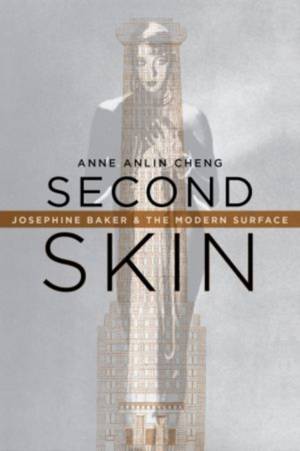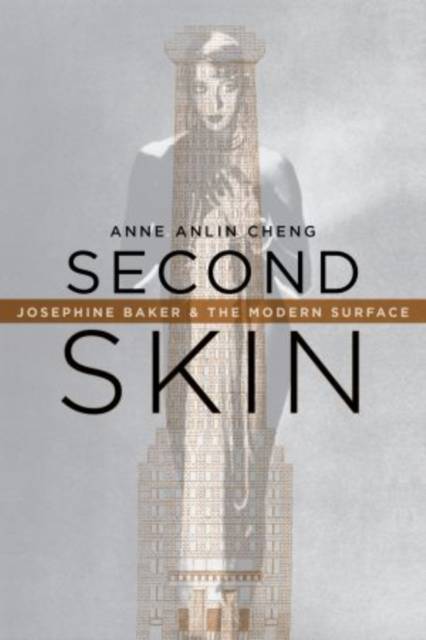
- Afhalen na 1 uur in een winkel met voorraad
- Gratis thuislevering in België vanaf € 30
- Ruim aanbod met 7 miljoen producten
- Afhalen na 1 uur in een winkel met voorraad
- Gratis thuislevering in België vanaf € 30
- Ruim aanbod met 7 miljoen producten
Zoeken
€ 51,95
+ 103 punten
Omschrijving
A playful, insanely ambitious text that seeks to rethink standard assumptions about Modernism, race and Josephine Baker in less than 200 pages . . . The book performs the admirable service of making Josephine Baker, the world she inhabited, and the skin that inhabited her seem stranger and more
complex than they did before.--cinespect.com
Opening up an entirely original line of inquiry that connects the architectural surfaces of Adolf Loos and Le Corbusier to the shimmering allure of Josephine Baker's skin, this far-reaching study gives us a unique model of cross-cultural modernity in which psychoanalysis has a major role to play.
With wit, verve, and precision, Anne Cheng's insights ensure that our understanding of early Modernism will never be the same and that our notions of phantasy and identification in art, film, and performance will be radically transformed.--Kobena Mercer, author of Welcome to the Jungle
Anne Cheng's Second Skin offers an innovative, surprising, deeply transdisciplinary archaeology of aesthetic Modernism's relationship to race and its performances. Le Corbusier, Adolf Loos, Picasso, Paul Val rie, and Freud's psychoanalysis become partners in the is dizzying theoretical and
historical analysis, where Cheng reveals how buildings, fashion, photographs, paintings, and dances express as well as construct our shared legacy of racial formations.--André Lepecki, author of Exhausting Dance: Performance and the Politics of Movement
In a bravura meditation on the surfaces at the core of Modernism--skin, costume, canvas screen, ornament, pattern--Anne Anlin Cheng tracks the vicissitudes of visual pleasure in the encounter between Europe and its others. La Baker was not simply a lightning rod for exotic stereotypes, Cheng
suggests, but instead a 'dynamic fulcrum' whose performances captivated because they staged the crosscurrents that define Modernist style, its dangerous intimacies between primitive and civilized, animal and machine, organic and plastic.--Brent Hayes Edwards, author of The Practice of Diaspora
This brilliant, provocative, eye-opening work provides a powerful account of racial fetishism and its centrality to the development of Modernist style, thus forwarding a stunning new theory of Modernism in its entirety.--Sianne Ngai, author of Ugly Feelings
Specificaties
Betrokkenen
- Auteur(s):
- Uitgeverij:
Inhoud
- Aantal bladzijden:
- 254
- Taal:
- Engels
Eigenschappen
- Productcode (EAN):
- 9780199988167
- Verschijningsdatum:
- 1/06/2013
- Uitvoering:
- Paperback
- Formaat:
- Trade paperback (VS)
- Afmetingen:
- 137 mm x 206 mm
- Gewicht:
- 408 g

Alleen bij Standaard Boekhandel
+ 103 punten op je klantenkaart van Standaard Boekhandel
Beoordelingen
We publiceren alleen reviews die voldoen aan de voorwaarden voor reviews. Bekijk onze voorwaarden voor reviews.











